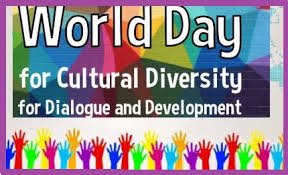 By dint of coordinated action, original initiatives and creativity, this imposed downtime has made it possible to see what is one of humanity’s riches: our diversity.
By dint of coordinated action, original initiatives and creativity, this imposed downtime has made it possible to see what is one of humanity’s riches: our diversity.
UNESCO Director-General Audrey Azoulay :: Read message Impact of COVID-19 on the Cultural Sector.
Cultural events cancelled, cultural institutions closed, community cultural practices
suspended, empty UNESCO World Heritage sites, heightened risk of looting of cultural
sites and poaching at natural sites, artists unable to make ends meet and the cultural
tourism sector greatly affected… The impact of COVID-19 on the cultural sector is being
felt around the world. This impact is social, economic and political – it affects the
fundamental right of access to culture, the social rights of artists and creative
professionals, and the protection of a diversity of cultural expressions.
The unfolding crisis risks deepening inequalities and rendering communities vulnerable.
In addition, the creative and cultural industries (CCI) contribute US$2,250bn to the
global economy (3% of GDP) and account for 29.5 million jobs worldwide. The
economic fall-out of not addressing the cultural sector – and all auxiliary services,
particularly in the tourism sector – could also be disastrous. (source ” Culture & COVID-19: Impact and Response Tracker – Issue 2 “)
Culture: A Source of Resilience
During this time of mass confinement, billions of people are turning to culture as a source of comfort, well-being and connection. There has been a surge in the creation of, and access to, cultural content online – from virtual visits to museums and galleries, streaming of films and even community choirs via social media – showing its fundamental role as a source of resilience for communities. Major crises throughout history have often given rise to a renaissance of culture and an explosion of new forms of creativity, so vital for human progress.















